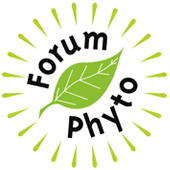 In this story, NPR(National Public Radio, USA) informs of what is happening in Salinas Valley in California, the « America’s salad bowl ». “We’d probably like to think that clean, safe food goes hand in hand with pristine nature, with lots of wildlife and clean water. But in the part of California that grows a lot of the country’s lettuce and spinach, these two goals have come into conflict.”
In this story, NPR(National Public Radio, USA) informs of what is happening in Salinas Valley in California, the « America’s salad bowl ». “We’d probably like to think that clean, safe food goes hand in hand with pristine nature, with lots of wildlife and clean water. But in the part of California that grows a lot of the country’s lettuce and spinach, these two goals have come into conflict.”
“For the past 40 years, this valley has been the scene of a struggle to find a balance between some of the most intensive farming in the world and what’s left of nature.”
“Then, six years ago, a food safety crisis shook the Salinas Valley. Bags of pre-washed spinach from this area, shipped to many places across the country, killed several people and sent hundreds more to the hospital. The leaves had been contaminated with a deadly kind of E coli bacteria. Those microbes can be carried into a lettuce or spinach field by wild animals — even little mice that might find shelter in grass along drainage ditches.”
“The farmers increasingly were being told, ‘This (drainage ditches) is a potential risk to your operation”. And one by one, the producers came in, sprayed it with herbicide, and returned the ditch to its bare dirt condition. It wasn’t just this ditch. Across the valley, trees, grass and hedgerows disappeared. So did ponds that might attract ducks and geese. Farmers built fences along the Salinas River channel, to keep wildlife that lives there from crossing into fields.”
“That campaign has been a success, in one way. During the past few years, there have not been any more big national outbreaks of disease that were traced to leafy greens.”
In the story, Bob Martin, a grower, gives a demonstrative example of what is at stake : he always liked having hawks or owls around, because they help control the mice. But now, those birds are seen as a threat, too. “I mean, it’s frowned on to put up an owl box. The food safety people say, ‘Owls poop, too.’ OK. But what do they poop? They poop out the mouse that you didn’t want in your salad!” Martin says. “Everything we do is conflicting! It seems like we can’t do anything right!”
This is a typical example where a benefit/risk analysis is crucial. A sensible analysis, Not an emotional one. Not so easy in these days…
